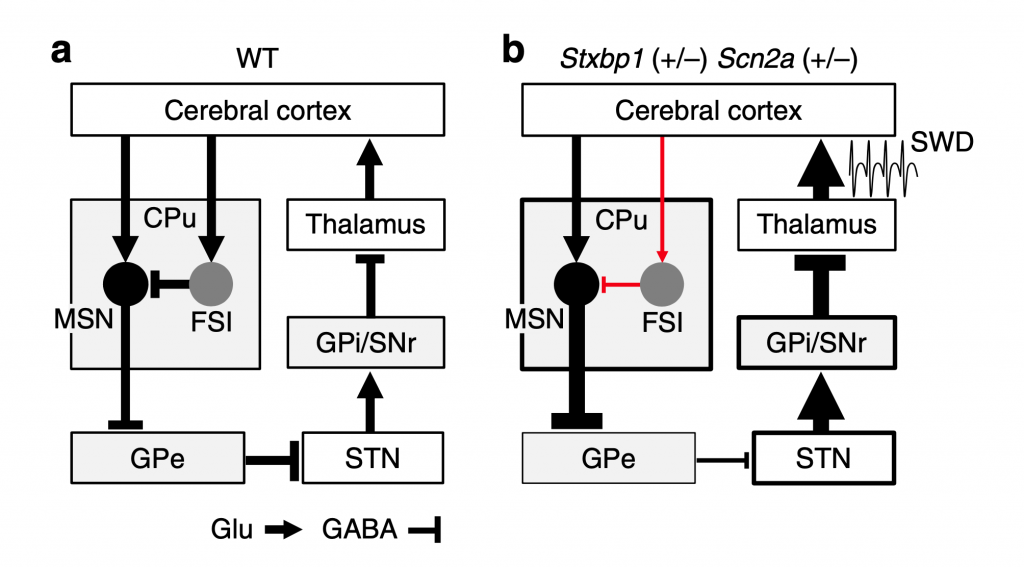Research
A number of studies clearly indicated that genetic backgrounds largely contribute to the pathogenesis of epilepsy and neurodevelopmental disorders, and actually recent developments of techniques in molecular genetics have identified a number of genes responsible for those diseases. Our research group has been working on the identification of those genes, making of disease model mice and the understanding of disease mechanisms by analyzing those models, and further trying to develop effective therapies including gene therapies to treat such diseases (Yamakawa group). We are also studying rheumatoid arthritis interstitial pneumonia (Kanazawa group).

Figure 1. A striatal circuit model for epilepsy in Stxbp1+/− and Scn2a+/− mice. a Canonical neural circuit of the indirect pathway in WT mice. b Hypothetical circuit for absence seizures in Stxbp1+/− and Scn2a+/− mice. Thicker and thinner lines indicate increased and decreased neural transmissions, respectively. (Miyamoto H et al, Nat Commun 2019)
Member

Professor
Kazuhiro Yamakawa

Associate Professor
Toshimitsu Suzuki

Assistant professor
Satoshi Kanazawa

Assistant professor
Tetsushi Yamagata

Technical staff
Yurina Hibi

Main Publications
- (Yamakawa Group)
- CRISPR/dCas9-based Scn1a gene activation in inhibitory neurons ameliorates epileptic and behavioral phenotypes of Dravet syndrome model mice. Neurobiol Dis. 104954 (2020).
- Impaired Cortico-Striatal Excitatory Transmission Triggers Epilepsy. Nat Commun. 10:1917 (2019).
- Altered hippocampal replay is associated with memory impairment in mice heterozygous for the Scn2a gene. Nat Neurosci. 21(7):996-1003. (2018).
- Variant intestinal cell kinase in juvenile myoclonic epilepsy. New Eng J Med. 378:1018-28. (2018).
- Mutations in EFHC1 cause juvenile myoclonic epilepsy. Nat Genet. 36:842-849. (2004).
- (Kanazawa Group)
- A Subpopulation of Synovial Fibroblasts Leads to Osteochondrogenesis in a Mouse Model of Chronic Inflammatory Rheumatoid Arthritis. JBMR Plus 3(6):e10132 (2019).




